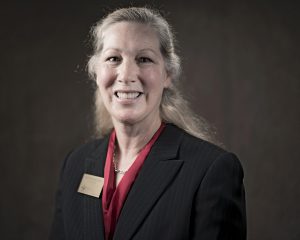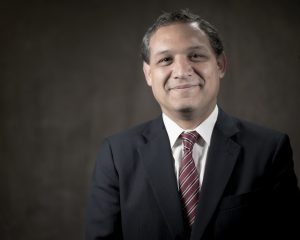Dallas ISD school board candidates Dr. Edwin Flores and Dr. Kyle Renard — both vying to replace District 1 trustee Elizabeth Jones who is not seeking another term — took the stage for a community forum Thursday night at Withers Elementary, hosted by the Royal Northaven Neighborhood Association and surrounding neighborhoods.
Questions covered everything from superintendent Mike Miles to intelligent design. The audience included mostly active homeowners who vote while next week’s forum on April 28 at E.D. Walker Middle School likely will draw more parents of kids at our neighborhood schools.
Here’s a quick recap of just a few of the issues discussed:
What would you tell prospective parents concerned about poor DISD schools in District 1, and how few students get into George Bannerman Dealey Montessori?
Renard: The state allows students to transfer to another school in the district if necessary but also, magnet schools are not as difficult to get into as people might think. “Many of the magnet schools admit students on the second round. People think it’s so hard, they don’t even apply.”
Flores: “I would tell them to look at the data.” Gooch Elementary, for example, saw major gains this past year on STAAR scores. Third-through-fifth graders are now at 96 percent in reading and writing. “Become involved. Don’t run away from your neighborhood schools.”
 Does the district place too much attention on test scores, or teaching to the test?
Does the district place too much attention on test scores, or teaching to the test?
Renard: We should not be looking only a test scores, and the six weeks spent on testing at schools should be instructional time. “Children are much more than a test score.”
Flores: There are not six weeks of testing – not in Dallas or any other district. The only way to help schools improve is to have some form of assessment. We need to look at possibly reducing the amount of time spent on testing, but “we do need to assess our schools.”
Teacher Excellence Initiative – good idea or bad idea?
Flores: He developed the initiative while still on the board. “We asked, how do you measure something that is an art? Can you measure it? Yes, you can.” Before 98 percent of teachers in the district met or exceeded standards while graduation rates were dismal and only 10 percent of students were college-ready.
Renard: “Every teacher I know expects to be evaluated. They’re professionals. They want that.” The concern about TEI is that there’s a lot more testing going on now than there was before. DISD has added more benchmarks in addition to state testing.
At one point during the forum, each candidate was allowed to ask their opponent a question directly.
 Flores: Why didn’t you send your children to District 1 schools? Renard: “I let my children guide me in where they wanted to go. My two boys loved computer science [so they went to the school with the best program, School for the Talented and Gifted]. That’s where they wanted to go. That’s the great thing about DISD – that you have so many choices.”
Flores: Why didn’t you send your children to District 1 schools? Renard: “I let my children guide me in where they wanted to go. My two boys loved computer science [so they went to the school with the best program, School for the Talented and Gifted]. That’s where they wanted to go. That’s the great thing about DISD – that you have so many choices.”
Renard: How does your service on charter school boards [such as KIPP DFW and International Leadership of Texas] not conflict with the goals of DISD? Flores: “We need a lot of help in that part of town. I’ve also served on the board of Good Shepherd Episcopal School, and they were scared of the Withers Wildcats, who were becoming bi-literate and bilingual. Competition is good. Competition is working. I’m proud of my service on those boards.”
How can we inspire disadvantaged kids to succeed in DISD?
Flores: “I tell them my story.” How growing up in Mexico his grandfather had a second-grade education. Flores’ father was the first in the family to finish elementary, high school, college, a masters degree and a PhD. And now, “I hold two doctorates.”
Renard: “It has a lot to with the teachers.” Everyone remembers the teacher who inspired them to push beyond their limits. We need a good central nucleus of teachers to provide that atmosphere at the school.
Be sure to watch the Advocate’s video interview series, “Beside One Fern,” to learn more about each candidate. Two more forums are coming up next week. Also, we took a closer look at voting numbers and learned how, if enough residents turned out at the polls, one neighborhood could decide the election.
Early voting begins April 27, and Election Day is May 9.






